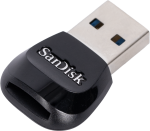
Adds CompactFlash capability to devices with a PCMCIA slot






Resumen
The CF1 adapter allows PCMCIA slots to store and read data on a CompactFlash (CF) card. Devices with a PCMCIA slot include PCs, CR5000 dataloggers, CR9000X-series dataloggers, and the CR9080 PAM Module for our CR9000 dataloggers.
Imágenes

Compatibilidad
Nota: lo siguiente muestra información de compatibilidad notable. No es una lista de todos los productos compatibles.
Dataloggers
| Producto | Compatible | Nota |
|---|---|---|
| 21X (retired) | ||
| CR10 (retired) | ||
| CR1000 (retired) | ||
| CR10X (retired) | ||
| CR200X (retired) | ||
| CR216X (retired) | ||
| CR23X (retired) | ||
| CR3000 (retired) | ||
| CR500 (retired) | ||
| CR5000 (retired) | ||
| CR510 (retired) | ||
| CR800 (retired) | ||
| CR850 (retired) | ||
| CR9000 (retired) | The CR9000 requires the CR9080 Module. | |
| CR9000X (retired) |
Información de compatibilidad adicional
Besides being compatible with our dataloggers (see Datalogger Considerations below), the CF1 fits into the PCMCIA slot on a computer allowing the computer to read CompactFlash cards.
CompactFlash (CF) Cards
One Type I or Type II CF card fits in the module's slot. Campbell Scientific offers and recommends several CF cards (see Ordering tab). These cards have passed Campbell Scientific's ESD testing and operate properly with our dataloggers.
Only industrial-grade CF card should be used with our products. Although consumer-grade cards cost less than industrial-grade cards, the consumer-grade cards are more susceptible to failure resulting in both the loss of the card and its stored data. Industrial-grade cards also function over wider temperature ranges and have longer life spans than consumer-grade cards.
Especificaciones
| Manufacturer | SanDisk |
| Temperature Range | -40° to +84°C (operating) |
| Dimensions | 8.6 x 5.4 x 0.5 cm (3.4 x 2.1 x 0.2 in.) |

